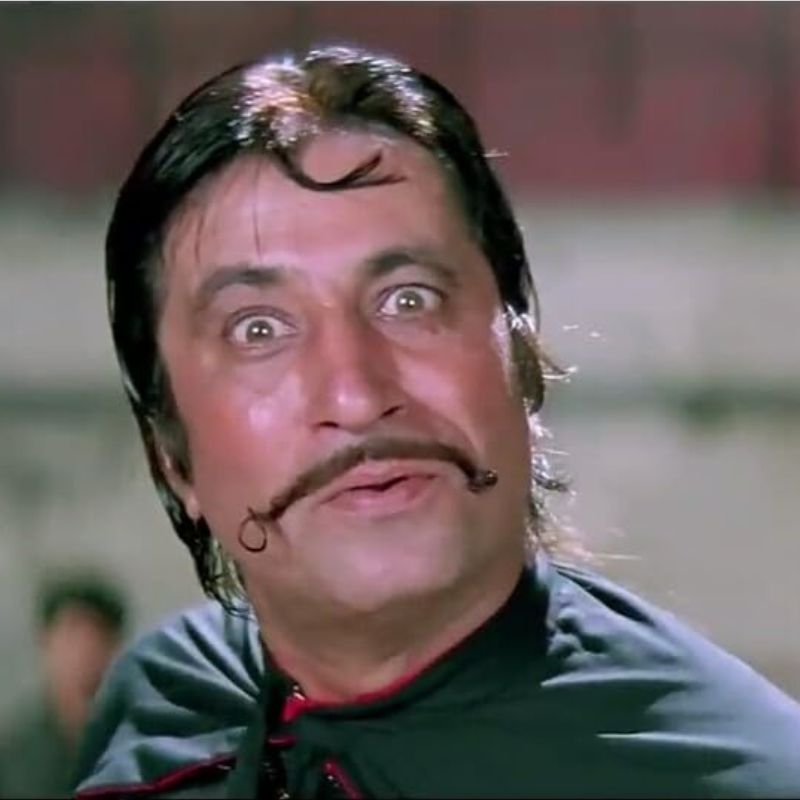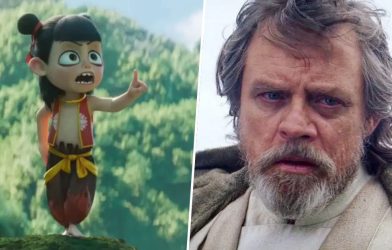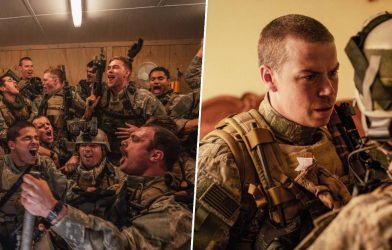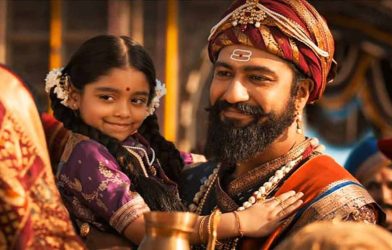Iconic dialogues or their variations are often used to express a feeling that simple words cannot. If one traces their origins, then they will probably take us back to the era of single-screen cinema halls. Even in today’s times, the audience whistling or clapping while hearing their favourite actor throw a powerful punchline is hard to miss. These famous Bollywood dialogues, much like the timeless movies they featured in, have also stood the test of time.
For instance, “Kitne Aadmi The?” from the movie Sholay, is etched in our memories even after its release nearly five decades ago in 1975. The three-word dialogue, delivered by Gabbar Singh (portrayed by Amjad Khan), was so impactful owing to the tone of the late actor, brilliant camerawork, background score and much more that it has left a lasting impression on generations.
Here, we have put together a list of iconic Bollywood dialogues from the past five decades that strongly resonate with the masses and have found their way into pop culture even today.
These are some of the famous Bollywood dialogues
Mogambo khush hua!
Movie: Mr. India (1987)
About the dialogue: Among the most famous Bollywood dialogues, “Mogambo khush hua!” is used multiple times in the movie, each coming at a moment when the megalomaniac antagonist, Mogambo (Amrish Puri), gets to know about the progress of his plans for ruling over India.
Aaj mere pas bungla hain, gadi hain, bank balance hain, kya hai tumhare paas? …Mere paas maa hai.
Movie: Deewar (1975)
About the dialogue: Ravi Verma (Shashi Kapoor), who is an idealist police officer, delivers this famous Bollywood dialogue after a lengthy diatribe by his brother Vijay (Amitabh Bachchan). In the scene, Vijay says, “Mere paas property hai, bank balance hai, bangla hai, gaadi hai.. kya hai tumhare paas?”
To this, Ravi responds, “Mere paas maa hai.”
Jaa, Simran, jaa. Jeele apni zindagi.
Movie: Dilwale Dulhania Le Jayenge (1995)
About the dialogue: Raj (Shah Rukh Khan) is injured after a fight with his love interest Simran’s (Kajol) fiancé at the railway station. Standing at the railway coach’s door as the train departs, Raj expectantly looks at Kajol in order to join him. She pleads with her father (Puri), who has been against her relationship with Raj, to let go of her hand. As the train gains speed, Simran’s father suddenly releases his grip and says, “Jaa Simran, jaa. Jeele apni zindagi.”
Kitne aadmi the?
Movie: Sholay (1975)
About the dialogue: The line, arguably the most famous Hindi dialogue, is delivered when dacoit Gabbar Singh (Amjad Khan) asks his men, “Kitne aadmi the?” upon their return to their camp after being beaten up by Jai (Bachchan) and Veeru (Dharmendra). The latter two are hired by Thakur Baldev Singh (Sanjeev Kumar) to catch Gabbar.
Beta, tumse naa ho payega!
Movie: Gangs of Wasseypur – Part 2 (2012)
About the dialogue: Ramadhir Singh (Tigmanshu Dhulia), who is a coal mafia-turned-politician in the Dhanbad region, says, “Beta, tumse naa ho payega,” while expressing disappointment in his son for being an emotional fool in handling political business affairs and showing a lack of focus on work.
Tareekh pe tareekh, tareekh pe tareekh, tareekh pe tareekh…
Movie: Damini (1993)
About the dialogue: This famous Bollywood dialogue comes up when lawyer Govind Srivastav (Sunny Deol) delivers an impassioned speech inside a courtroom while expressing his frustration over the repeated postponement of hearings in his case.
Rishtey mein toh hum tumhare baap hote hain aur naam hai Shahensha.
Movie: Shahenshah (1988)
About the dialogue: Crime-fighting vigilante Shahenshah (Bachchan) says, “Rishtey mein toh hum tumhare baap hote hain aur naam hai Shahensha” when he is about to beat up a few goons in a dingy tavern.
Babu moshai, zindagi badi honi chahiye lambi nahi.
Movie: Anand (1971)
About the dialogue: Anand (Rajesh Khanna), aware of the spreading cancer in his body, is a high-spirited person who chooses not to worry about impending death. This iconic dialogue is delivered when he seeks a second opinion from doctors Dr. Bhaskar K Banerjee (Bachchan) and Dr. Prakash Kulakrni (Ramesh Deo). They give him around six months to live. It is then Anand says, “Babu moshai, zindagi badi honi chahiye lambi nahi”.
K***** k******, tu mujhse bachkar nahi ja sakta. Main tera khoon pee jaoonga.
Movie: Yaadon Ki Baaraat (1973)
About the dialogue: Among the most famous Bollywood dialogues, especially from the 1970s to the 80s, this dialogue has been used in multiple films. However, it drew more attention when it was spoken in Yaadon Ki Baaraat by Dharmendra’s character, Shankar. He quivers this dialogue with rage as he confronts his parents’ killers.
Don ka intezar toh gyaarah mulkon ki police kar rahi hai. Lekin, Soniya, ek baat samajhlo, Don ko pakadna mushkil hi nahi, namumkin hai.
Movie: Don (1978)
About the dialogue: Don (Bachchan) has been double-crossed by Soniya (Helen) and is surrounded by cops. As she reveals to Don that he cannot escape this time, the latter says, “Don ka intezar toh gyaarah mulkon ki police kar rahi hai. Lekin Soniya, ek baat samajhlo Don ko pakadna mushkil hi nahi, namumkin hai ”
How’s the josh?
Movie: Uri: The Surgical Strike (2019)
About the dialogue: Just before heading for a secret mission across the border, Major Vihaan Singh Shergill (Vicky Kaushal) asks his soldiers, “How’s the josh?” The soldiers respond in unison, “High, sir!”
Haar kar jeetne wale ko baazigar kehte hai.
Movie: Baazigar (1993)
About the dialogue: Ajay Sharma (Shah Rukh Khan), who is posing as Vicky Malhotra to exact revenge on businessman Madan Chopra (Dalip Tahil), enters the same car race competition as Madan. To gain his trust and charm his daughter Priya (Kajol), Ajay deliberately loses the race to Madan. When Priya goes to Ajay to find out why he lost the race, he smiles and replies, “Kabhi kabhi jeetne ke liye kuch harna bhi padta hai,” adding, “Aur har kar jeetne wale ko Baazigar kehte hain.”
Ek machhar s*** aadmi ko hijda bana deta hai.
Movie: Yeshwant (1997)
About the dialogue: Yeshwant Lohar (Nana Patekar), an upright police officer, is locked up in jail after being falsely implicated in a murder case. The dialogue, “Ek machhar s*** aadmi ko hijda bana deta hai”, is part of the powerful monologue Yeshwant delivers in the prison cell, attacking both the system and society.
I love you, KKK…. Kiran.
Movie: Darr (1993)
About the dialogue: The unforgettable stammering dialogue unfolds when Rahul Mehra (Shah Rukh Khan), who is obsessively in love with Kiran Awasti (Juhi Chawla), confesses his feelings in front of her. However, Kiran, who is in love with Sunil Malhotra (Deol), is so terrified that she faints onboard what looks like a yacht.
Pushpa, mujhse yeh assun nahin dekhe jate. I hate tears…
Movie: Amar Prem (1972)
About the dialogue: This dialogue is part of the scene in which wealthy businessman Anand Babu (Rajesh Khanna), who is falling for courtesan Pushpa (Sharmila Tagore), notices tears in her eyes. He then tenderly says, “Pushpa, mujhse yeh assun nahin dekhe jate. I hate tears….”
Bade bade deshon mein aisi chhoti chhoti baatein hoti rehti hain.
Movie: Dilwale Dulhaniya Le Jaayenge (1995)
About the dialogue: Raj Malhotra (Shah Rukh Khan) and Simran Singh (Kajol) meet on a train during a trip to Europe with their respective friends. As they spend time together, Simran apologises to Raj for being angry with him. Raj, accepting her apology, says, “Bade bade deshon mein aisi chhoti chhoti baatein hoti rehti hain.”
Dosti ka ek usool hai, madam: no sorry, no thank you.
Movie: Maine Pyaar Kiya (1989)
About the dialogue: Suman (Bhagyashree) lives at the house of her father’s friend, Kishen Kumar Choudhary (Rajeev Verma). When Kishen’s son, Prem Choudhary (Salman Khan), returns from the US, he befriends Suman and gives her his cap. She accepts it and expresses her thanks, to which Prem quickly responds, “Dosti ka ek usool hai, madam: no sorry, no thank you“.
Main tumhe bhool jao, ye ho nahi sakta… aur tum mujhe bhool jao, ye main hone nahi doonga.
Movie: Dhadkan (2000)
About the dialogue: When Anjali (Shilpa Shetty), who is married to Ram (Akshay Kumar), meets her ex-boyfriend (Suniel Shetty) and asks him to move on, he angrily says, “Mai tumhe bhool jao, ye ho nahi sakta… aur tum mujhe bhool jao, ye mai hone nahi doonga.”
Crime master Gogo naam hai mera, aankhein nikaal kar gotiyan khelta hun main gotiyan.
Movie: Andaz Apna Apna (1994)
About the dialogue: Crime Master Gogo (Shakti Kapoor) has been trying to get his money back from Teja Bajaj (Paresh Raval). One day, he intercepts Teja’s men, Robert (Viju Khote) and Bhalla (Shehzad Khan). Introducing himself, he says, “Crime master Gogo naam hai mera, aankhein nikaal kar gotiyan khelta hun main gotiyan.”
Mein apni favourite hoon!
Movie: Jab We Met (2007)
About the dialogue: Businessman Aditya Kashyap (Shahid Kapoor) is depressed following his father’s death and a breakup. He impulsively leaves Mumbai and meets cheerful Geet Dhillon (Kareen Kapoor) on a train. A sequence of events lands them in a cheap hotel room, where Aditya opens up to Geet. She then tries to cheer him up and succeeds in doing so. Aditya remarks, “Tum apne aap ko bahut pasand karti ho na? ” To this, Geet jovially responds, “Mein apni favourite hoon”.
Picture abhi baaki hai mere dost.
Movie: Om Shanti Om (2007)
About the dialogue: Om Prakash Makhija (Shah Rukh Khan) aspires to become a big star while working as an extra in Hindi films. One night, standing outside an actor’s house in an intoxicated state with his friend Pappu Master (Shreyas Talpade), he delivers an impromptu acceptance speech using a liquor bottle as a mock film award. Expressing a belief in the universe aiding those with genuine desires, he ends the speech with one of the most famous dialogues — “Picture abhi baaki hai mere dost”.
Thapad se darr nahi lagta, sahab, pyar se lagta hai.
Movie: Dabangg (2010)
About the dialogue: While on a chase, Inspector Chulbul Pandey (Salman Khan) crosses paths with Rajjo and instantly falls for her. One day, he visits Rajjo, who is an earthen pot seller, and buys two pots in the hope of having a conversation with her. However, as the conversation wraps up quickly, he deliberately breaks them and purchases two more. But, the second time, she refuses the payment. Weighing on his authority, Chulbul suggests she keeps the money when given to her politely. To this, she says, “Thapad se darr nahi lagta, sahab, pyar se lagta hai.”
Kaun kambakht bardaasht karne ko peeta hai…hum toh peetey hai ki yahan par baith sake, tumhe dekh sake, tumhe bardaasht kar sake.
Movie: Devdas (2002)
About the dialogue: Devdas Mukherjee (Shah Rukh Khan) is on a path of self-destruction after his childhood sweetheart, Parvati (Aishwarya Rai), is married to someone else. He frequents a brothel, where courtesan Chandramukhi (Madhuri Dixit) falls in love with him. Seeing Devdas in a drunken state, she questions, “Kyun peetey ho itna ki bardaasht hi na kar pao”. To this he responds, “Kaun kambakht bardaasht karne ko peeta hai…hum toh peete hai ki yahan par baith sake, tumhe dekh sake, tumhe bardaasht kar sake.”
Saara shehar mujhe ‘Lion’ ke naam see janta hai.
A screengrab from Kalicharan. (Image: Courtesy of Screenshot/Ultra Bollywood/YouTube)
Movie: Kalicharan (1976)
About the dialogue: When fearless cop Prabhakar (Shatrughan Sinha) visits the influential and corrupt Dindayal (Ajit Khan) at his residence, he confronts him about his criminal activities and threatens to expose him. At this moment, Dindayal, realising that the inspector is aware of his true identity, defiantly asserts, “Saara shehar mujhe ‘Lion’ ke naam see janta hai” where he goes on to liken his reputation to that of a lion in the jungle.
Mein toh kehta hu aap purush hi nahi…maha purush hain, maha purush!
Movie: Andaz Apna Apna (1994)
About the dialogue: The dialogue is part of the comic standoff that unfolds at Crime Master Gogo’s (Shakti Kapoor) hideout. Gogo has kidnapped Ram Gopal (Paresh Raval) and his daughters Raveena (Raveena Tandon) and Karishma (Karishma Kapoor). Soon, Amar (Aamir Khan) and Prem (Salman Khan) reach the place of action and try to contain the situation by praising Gogo. However, Amar takes it a bit too far and says, “Mein toh kehta hu aap purush hi nahi… maha purush hain, maha purush!”
(Hero image: Courtesy of Deewar/IMDb) (Feature image: Courtesy of Andaz Apna Apna/IMDb)
Frequently Asked Questions (FAQs)
– What are some catchy Bollywood dialogues?
“Rishte mein toh hum tumhare baap lagte hain, naam hai Shahenshah” from Shahenshah; “Mogambo khush hua” from Mr. India; “Pushpa, mujhse yeh assun nahin dekhe jate. I hate tears…” from Amar Prem; “I Love You KKK…. Kiran” from Darr are among the most famous and catchy Bollywood dialogues.
– What is the best dialogue in a movie?
If one is to pick from the most famous dialogues in Bollywood movies, then “Kitne Aadmi the?” from Sholay and “Aaj mere pas bungla hain, gadi hain, bank balance hain, kya hai tumhare paas? …Mere paas maa hai” from Deewar earn prominent spots on that list.
– What are the famous romantic dialogues from Bollywood movies?
“Bade bade deshon mein aisi chhoti chhoti baatein hoti rehti hain” from Dilwale Dulhania Le Jayenge; “Haar kar jeetne wale ko baazigar kehte hai” from Baazigar; “Main tumhe bhool jao, ye ho nahi sakta… aur tum mujhe bhool jao, ye main hone nahi doonga” from Dhadkan; “Thapad se darr nahi lagta, sahab, pyar se lagta hai” from Dabangg are among the famous Hindi cinema dialogues that have truly managed to capture love and emotions.
– Which is the longest dialogue in Bollywood?
One of the longest monologues in Hindi films is by Kartik Aaryan. Lasting nearly seven minutes, the impassioned speech by Aaryan’s character Anshul Sharma is a rant about women’s perceived irrational, clingy and impatient behaviour.
– What is the famous Bollywood dialogue on friendship?
“Dosti ka ek usool hai, madam: no sorry, no thank you” from Maine Pyar Kiya; “Ya toh dosti gehri hai, ya yeh photo 3D hai” from Dil Chahta Hai; “Pyaar mein junoon hai, par dosti mein sukoon hai” from Ae Dil Hai Mushkil; and “Kuch logon ke saath rehne se hi sab theek ho jata hai” from Yeh Jawaani Hai Deewani are some of the best Bollywood dialogues on friendship.









